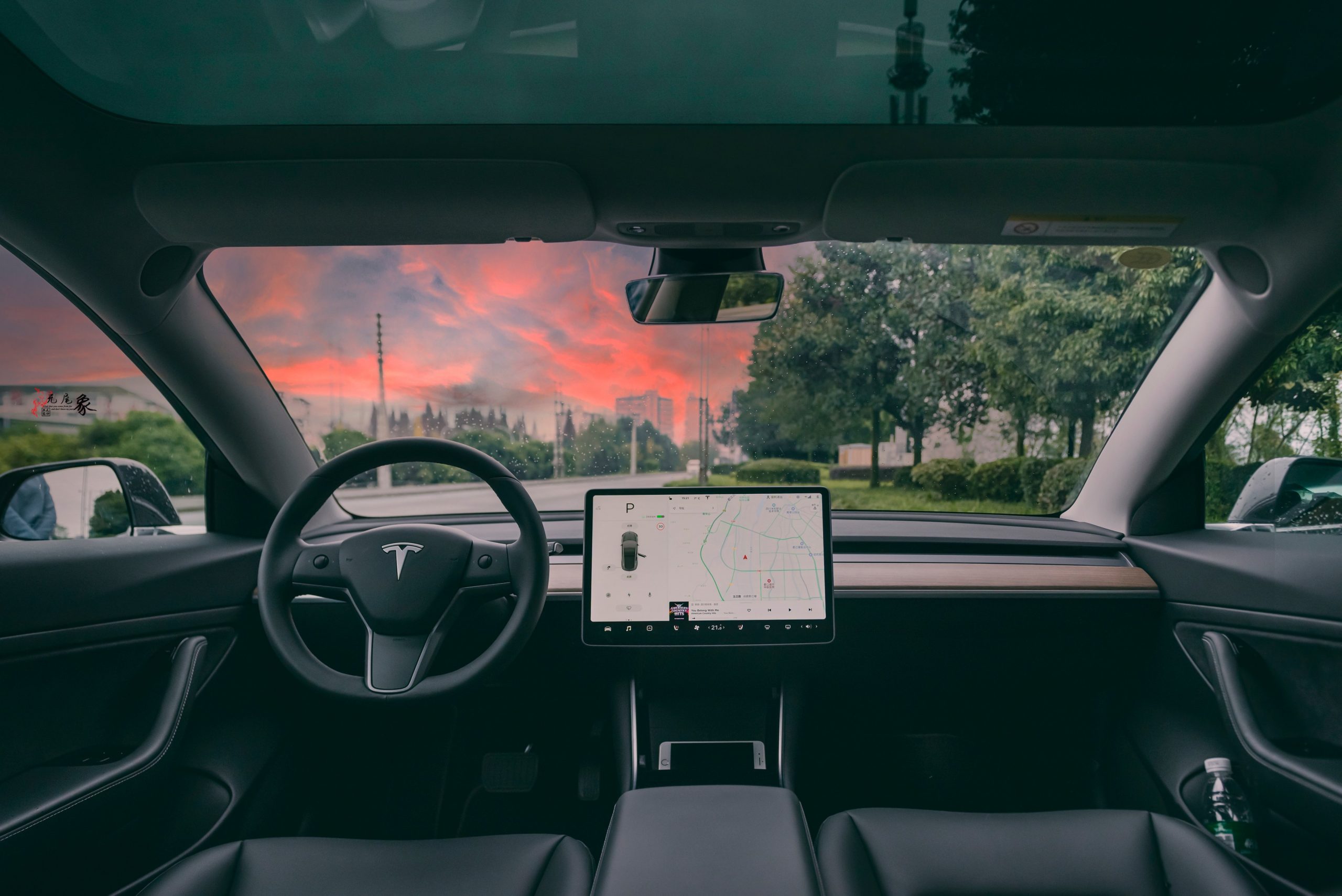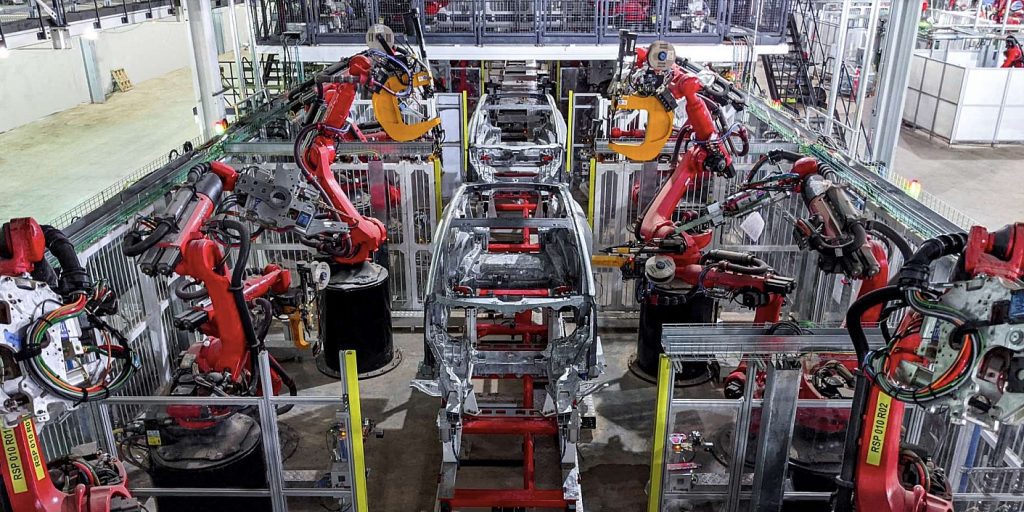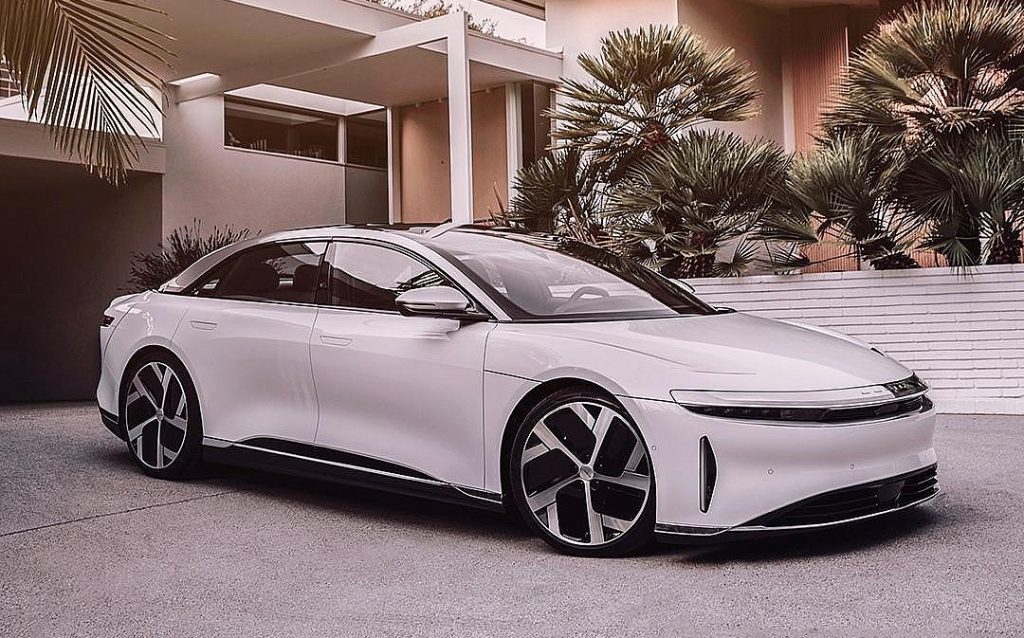

News
Tesla’s long road to maturity teaches a hard lesson for electric vehicle startups
Elon Musk may be prone to incredibly optimistic release estimates for Tesla’s products, but there is one aspect of the company that the CEO has been very realistic on — the challenges involved in mass production. Over the years, Elon Musk has highlighted this point. In the Q2 2021 earnings call alone, Musk reiterated these challenges when describing just how difficult it was to ramp the production of Tesla’s custom 4680 cells. “Limited production is easy, prototype production is easy but high-volume production is hard. There are a number of challenges in transitioning from sort of small-scale production to large volume production,” Musk said.
Tesla is now a mature electric vehicle company, but it has not always been that way. Before its eight consecutive profitable quarters, Tesla was fighting an uphill battle, coming close to ruin more than once. Today, Tesla is a strong automaker, weathering the issues brought about by the chip crisis admirably and securing $1 billion quarterly profit for the first time in Q2 2021. That’s not bad at all for an 18-year-old company competing in one of the most unforgiving segments in the market.

One thing that may be forgotten today is just how long the road was for Tesla before it was able to secure the stable ground that it stands on today. This long, arduous road, paved with several trips through “production hell,” would likely be faced by other electric car makers as well. This would likely be especially true for companies like Lucid, which entered the stock market even before it delivered its first car to consumers.
There is a trend now among electric vehicle makers. Unlike Tesla, which went public after delivering the original Roadster to customers, other EV makers have gone public through special purpose acquisition companies (SPACs). This was the case for controversial hydrogen truck maker Nikola, which saw its stock climb rapidly before plummeting down as issues about its founder Trevor Milton emerged. Nikola is not alone in the SPAC trend, with companies like Lucid and Fisker also going public through SPACs.
As noted in a Bloomberg report, a good number of these EV makers have seen quite a bit of volatility. Nikola’s rapid rise and fall aside, companies like Faraday Future have exhibited volatility not long after they debuted on the Nasdaq. Faraday saw gains in its inaugural day of trading, for example, but the company saw a 23% drop over the next two sessions.

It’s almost expected now that new EV makers that enter the stock market through a SPAC would likely see notable gains and some steep losses. And now that they are publicly traded, management decisions and strategies would likely result in their respective stocks seeing some movement.
This was experienced by Lucid Motors. The SPAC that took Lucid public earlier this year saw dips in its stock after the EV maker postponed the initial production of its Air sedan, which CEO Peter Rawlinson explained was due to the pandemic. What is quite interesting is that Lucid is already one of the more prepared EV makers that are looking to follow Tesla into the mainstream auto segment, since it has a ready product and management that seems to have things in order.
Other EV makers that have gone public through SPACs, such as Nikola, Canoo, and Lordstown Motors, ended up experiencing management turmoil even before they went public. This means that many electric car companies, particularly those who may be entering the stock market through a SPAC, may very well have to learn a hard lesson about how difficult it is to transition from being a maker of EV prototypes to a mass manufacturer of electric cars that can stand beside Tesla in the mainstream auto market.
Don’t hesitate to contact us with news tips. Just send a message to tips@teslarati.com to give us a heads up.
News
Tesla cleared in Canada EV rebate investigation
Tesla has been cleared in an investigation into the company’s staggering number of EV rebate claims in Canada in January.

Canadian officials have cleared Tesla following an investigation into a large number of claims submitted to the country’s electric vehicle (EV) rebates earlier this year.
Transport Canada has ruled that there was no evidence of fraud after Tesla submitted 8,653 EV rebate claims for the country’s Incentives for Zero-Emission Vehicles (iZEV) program, as detailed in a report on Friday from The Globe and Mail. Despite the huge number of claims, Canadian authorities have found that the figure represented vehicles that had been delivered prior to the submission deadline for the program.
According to Transport Minister Chrystia Freeland, the claims “were determined to legitimately represent cars sold before January 12,” which was the final day for OEMs to submit these claims before the government suspended the program.
Upon initial reporting of the Tesla claims submitted in January, it was estimated that they were valued at around $43 million. In March, Freeland and Transport Canada opened the investigation into Tesla, noting that they would be freezing the rebate payments until the claims were found to be valid.
READ MORE ON ELECTRIC VEHICLES: EVs getting cleaner more quickly than expected in Europe: study
Huw Williams, Canadian Automobile Dealers Association Public Affairs Director, accepted the results of the investigation, while also questioning how Tesla knew to submit the claims that weekend, just before the program ran out.
“I think there’s a larger question as to how Tesla knew to run those through on that weekend,” Williams said. “It doesn’t appear to me that we have an investigation into any communication between Transport Canada and Tesla, between officials who may have shared information inappropriately.”
Tesla sales have been down in Canada for the first half of this year, amidst turmoil between the country and the Trump administration’s tariffs. Although Elon Musk has since stepped back from his role with the administration, a number of companies and officials in Canada were calling for a boycott of Tesla’s vehicles earlier this year, due in part to his association with Trump.
News
Tesla Semis to get 18 new Megachargers at this PepsiCo plant
PepsiCo is set to add more Tesla Semi Megachargers, this time at a facility in North Carolina.

Tesla partner PepsiCo is set to build new Semi charging stations at one of its manufacturing sites, as revealed in new permitting plans shared this week.
On Friday, Tesla charging station scout MarcoRP shared plans on X for 18 Semi Megacharging stalls at PepsiCo’s facility in Charlotte, North Carolina, coming as the latest update plans for the company’s increasingly electrified fleet. The stalls are set to be built side by side, along with three Tesla Megapack grid-scale battery systems.
The plans also note the faster charging speeds for the chargers, which can charge the Class 8 Semi at speeds of up to 1MW. Tesla says that the speed can charge the Semi back to roughly 70 percent in around 30 minutes.
You can see the site plans for the PepsiCo North Carolina Megacharger below.

Credit: PepsiCo (via MarcoRPi1 on X)

Credit: PepsiCo (via MarcoRPi1 on X)
READ MORE ON THE TESLA SEMI: Tesla to build Semi Megacharger station in Southern California
PepsiCo’s Tesla Semi fleet, other Megachargers, and initial tests and deliveries
PepsiCo was the first external customer to take delivery of Tesla’s Semis back in 2023, starting with just an initial order of 15. Since then, the company has continued to expand the fleet, recently taking delivery of an additional 50 units in California. The PepsiCo fleet was up to around 86 units as of last year, according to statements from Semi Senior Manager Dan Priestley.
Additionally, the company has similar Megachargers at its facilities in Modesto, Sacramento, and Fresno, California, and Tesla also submitted plans for approval to build 12 new Megacharging stalls in Los Angeles County.
Over the past couple of years, Tesla has also been delivering the electric Class 8 units to a number of other companies for pilot programs, and Priestley shared some results from PepsiCo’s initial Semi tests last year. Notably, the executive spoke with a handful of PepsiCo workers who said they really liked the Semi and wouldn’t plan on going back to diesel trucks.
The company is also nearing completion of a higher-volume Semi plant at its Gigafactory in Nevada, which is expected to eventually have an annual production capacity of 50,000 Semi units.
Tesla executive teases plan to further electrify supply chain
News
Tesla sales soar in Norway with new Model Y leading the charge
Tesla recorded a 54% year-over-year jump in new vehicle registrations in June.

Tesla is seeing strong momentum in Norway, with sales of the new Model Y helping the company maintain dominance in one of the world’s most electric vehicle-friendly markets.
Model Y upgrades and consumer preferences
According to the Norwegian Road Federation (OFV), Tesla recorded a 54% year-over-year jump in new vehicle registrations in June. The Model Y led the charge, posting a 115% increase compared to the same period last year. Tesla Norway’s growth was even more notable in May, with sales surging a whopping 213%, as noted in a CNBC report.
Christina Bu, secretary general of the Norwegian EV Association (NEVA), stated that Tesla’s strong market performance was partly due to the updated Model Y, which is really just a good car, period.
“I think it just has to do with the fact that they deliver a car which has quite a lot of value for money and is what Norwegians need. What Norwegians need, a large luggage space, all wheel drive, and a tow hitch, high ground clearance as well. In addition, quite good digital solutions which people have gotten used to, and also a charging network,” she said.
Tesla in Europe
Tesla’s success in Norway is supported by long-standing government incentives for EV adoption, including exemptions from VAT, road toll discounts, and access to bus lanes. Public and home charging infrastructure is also widely available, making the EV ownership experience in the country very convenient.
Tesla’s performance in Europe is still a mixed bag, with markets like Germany and France still seeing declines in recent months. In areas such as Norway, Spain, and Portugal, however, Tesla’s new car registrations are rising. Spain’s sales rose 61% and Portugal’s sales rose 7% last month. This suggests that regional demand may be stabilizing or rebounding in pockets of Europe.
-

 Elon Musk2 weeks ago
Elon Musk2 weeks agoTesla investors will be shocked by Jim Cramer’s latest assessment
-

 Elon Musk2 days ago
Elon Musk2 days agoxAI launches Grok 4 with new $300/month SuperGrok Heavy subscription
-

 Elon Musk4 days ago
Elon Musk4 days agoElon Musk confirms Grok 4 launch on July 9 with livestream event
-

 News1 week ago
News1 week agoTesla Model 3 ranks as the safest new car in Europe for 2025, per Euro NCAP tests
-

 Elon Musk2 weeks ago
Elon Musk2 weeks agoA Tesla just delivered itself to a customer autonomously, Elon Musk confirms
-

 Elon Musk1 week ago
Elon Musk1 week agoxAI’s Memphis data center receives air permit despite community criticism
-

 News2 weeks ago
News2 weeks agoXiaomi CEO congratulates Tesla on first FSD delivery: “We have to continue learning!”
-

 News2 weeks ago
News2 weeks agoTesla sees explosive sales growth in UK, Spain, and Netherlands in June
















